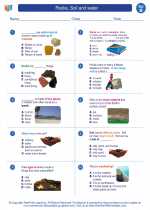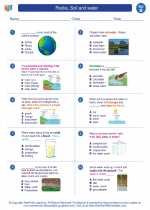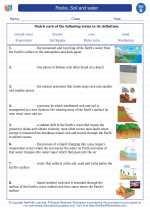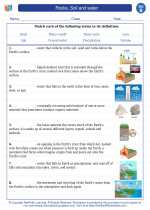Glaciation
Glaciation refers to the process of the formation, movement, and melting of glaciers. It is a key component of the Earth's natural climate cycle and has played a significant role in shaping the planet's landscapes over millions of years.
Causes of Glaciation
Glaciation is primarily caused by changes in the Earth's orbit and axial tilt, known as Milankovitch cycles, which affect the amount and distribution of solar radiation reaching the Earth's surface. These changes can lead to periods of cooling, resulting in the formation of glaciers in polar and high-altitude regions.
Effects of Glaciation
Glaciation has a profound impact on the Earth's surface. As glaciers move, they erode the land, shaping valleys, fjords, and other distinctive landforms. When glaciers melt, they contribute to the formation of lakes, rivers, and fertile soil, influencing the distribution of water and nutrients across landscapes.
Study Guide
- What are the primary causes of glaciation?
- How do glaciers shape the Earth's surface?
- What role do glaciers play in the distribution of water and nutrients?
- Discuss the importance of Milankovitch cycles in understanding glaciation.
Understanding glaciation is important for comprehending the Earth's geological history and its ongoing impact on the environment. It also provides insights into climate change and its potential effects on glaciers and polar ice caps.
.◂Science Worksheets and Study Guides Second Grade. Rocks, Soil and water

 Worksheet/Answer key
Worksheet/Answer key
 Worksheet/Answer key
Worksheet/Answer key
 Worksheet/Answer key
Worksheet/Answer key
 Vocabulary/Answer key
Vocabulary/Answer key
 Vocabulary/Answer key
Vocabulary/Answer key
